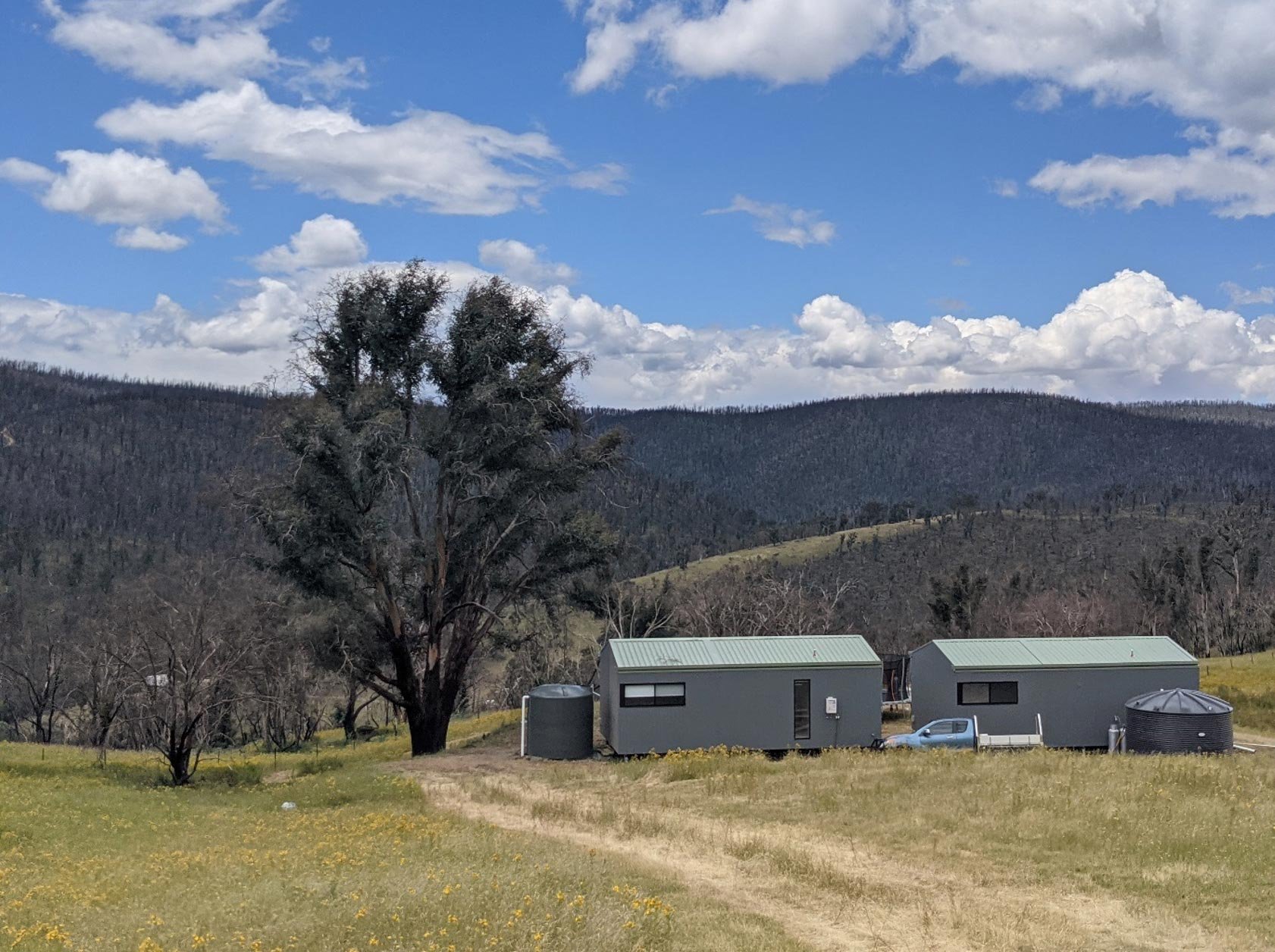Combining offsite construction and onsite assembly to support rural and remote projects
Sensum shares their experience on the nuances of delivering modular projects to benefit regional and remote communities.
Temporary modular home delivered by Sensum for Bushfire Recovery recipient.
It is possible to honour local trades and contribute to regional educational pathways to new employment using both offsite (modular construction) and onsite works and assembly projects.
The key is having a thorough understanding, awareness of sensitivities and capacity within the local workforce, and consideration of the people the project effects – the client, local workforce, the end users.
The benefits can be lifechanging for individuals and communities.
Some of the most important benefits Sensum have witnessed in delivering modular projects in remote areas is the incomparable speed and flexibility – particularly for disaster relief projects. In response to the 2019-20 bushfires, the Sensum team delivered 70 temporary modular houses with Bushfire Recovery Victoria to support affected regional families as they rebuild their homes.
Many of these residents are living in locations that are extremely hard to access, not serviced by power, septic, or town water, without reception, and with no one around for hundreds of kilometres. Particularly during Covid, materials shortages and limited supply of local trades were also major issues.
The offsite construction of modular units allowed us to customise these homes, prefabricating offsite with available workers into smaller pieces that could be delivered and installed onsite with local trades for off grid solutions - connecting to septic systems, solar panels, gas bottles for cooking. Using this approach, onsite activity (early works, delivery, install and connection to existing services) takes just 2 weeks, with 5 weeks offsite for the building manufacture - compared to around 8 months in total for a traditional build.
Especially in remote and regional areas, where the capacity and access to local trades to support new builds is sometimes limited, combining both offsite build with onsite preparation, assembly, and service connection creates opportunities to build the economy locally while also contributing to the broader modular industry growth.
Sensum Project Manager Craig Artemiou shares,
‘This has been such a tremendously impactful program, changing the lives of so many Victorian families and helping them to rebuild their futures. The overwhelming positive response from the community and ongoing gratitude from the families using the buildings makes us very proud to work on such an important program.’
Bushfire Recovery Victoria recipients in their new temporary modular home delivered by Sensum.
We are now excited to be removing and reusing buildings where families have had the chance to rebuild their homes, which has already seen 12 of the 70 temporary modular buildings being used at more than one site. A great return on investment and outcome.
Another advantage of using modular in remote locations is the reduction of movement (which equates to a reduction in our carbon footprint!). Using traditional construction, a two-storey house might get 50-60 deliveries to site. To access remote and regional sites like some of the BRV recipients’ homes, that’s a lot driving – and a lot of fuel! By manufacturing offsite, we reduce the number of deliveries, and associated costs for a more sustainable project outcome. Material wastage is also substantially reduced by using modular, due to efficiencies in the manufacturing process. When the building is moved, it is 100% recycled and re-used with ZERO material waste!
Manufacturing offsite also ensures minimal disruption to surrounding residents and the environment, as well as reduced carbon emissions and onsite waste. This focus on respect for people, environmental preservation and sustainability is at the heart of modular – and what makes it so perfect for regional or remote projects.
Want to know how else we apply modular to regional and remote projects? Reach out and connect via info@sensum.com.au!


